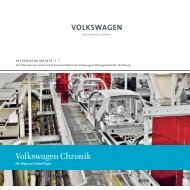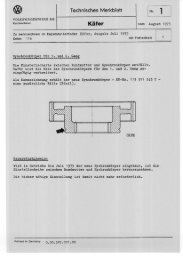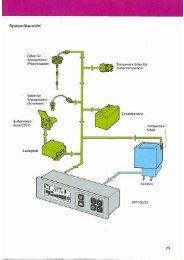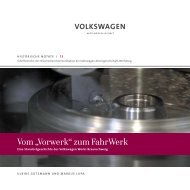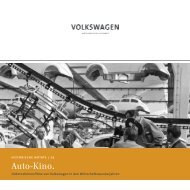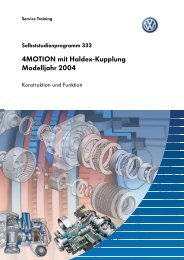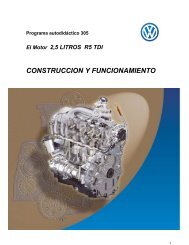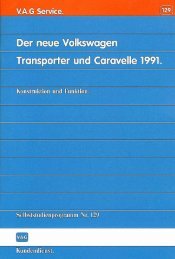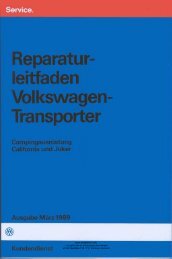HN 2: The British and their Works
HN 2: The British and their Works
HN 2: The British and their Works
You also want an ePaper? Increase the reach of your titles
YUMPU automatically turns print PDFs into web optimized ePapers that Google loves.
<strong>British</strong> soldiers take delivery of the first saloon cars<br />
produced since the end of the war.<br />
<strong>The</strong> acute coal shortage was not primarily the consequence of<br />
mining problems. An internal Volkswagenwerk report noted<br />
that there were considerable coal supplies available. 63 It was<br />
rather the consequences of the Allied bombing which were<br />
making themselves felt in the form of a delayed reaction, but<br />
thus the more acutely. <strong>The</strong> badly-damaged transportation<br />
system collapsed. Paralysing the supply of raw materials <strong>and</strong><br />
semi-finished products. In the mines there was a shortage of<br />
pit-props, the timber workers had no industrial clothing <strong>and</strong> the<br />
textile industry lacking the energy needed to produce it. <strong>The</strong><br />
number of rail trucks made available monthly in the northern<br />
region fell from 620,000 in October 1946 to some 400,000 in<br />
February 1947. Despite prioritisation of vital goods, the Allies<br />
were largely powerless in the face of the collapse of the transportation<br />
system – with disastrous consequences for the food<br />
supply situation. In the Ruhr, the daily food ration for normal<br />
consumers fell to 750 calories, driving thous<strong>and</strong>s of people on to<br />
the streets in "hunger marches". 64 Thanks to its agricultural<br />
environs, <strong>and</strong> cultivation on the estates of Mörse <strong>and</strong> Wolfsburg,<br />
both the Volkswagenwerk <strong>and</strong> the town were spared the worst<br />
effects of the general malnutrition.<br />
<strong>The</strong>re had been forewarnings of this crisis perceptible in the<br />
company as early as November 1946. On account of the constant<br />
power cuts, the rolling mills could not meet the agreed supply<br />
deadlines. <strong>The</strong> Ohle ironworks <strong>and</strong> the Bochum iron <strong>and</strong> steel<br />
mills announced the postponement of supply dates by three to<br />
four weeks. At Continental rubber works the rationing of the<br />
energy supply led to reductions in production, with the result<br />
that stocks at the Volkswagenwerk would be used up by<br />
December 1946 at the latest. Although the suppliers made<br />
28 29<br />
THE IMPROVED UPSWING



